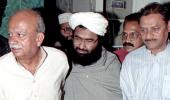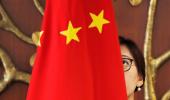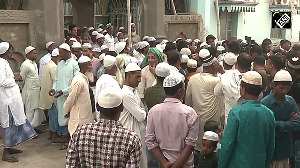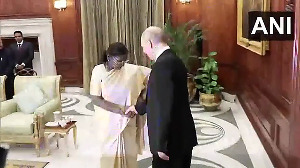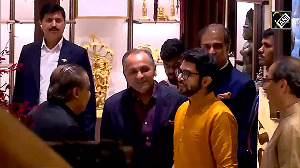China has blocked a proposal by the US and India at the UN Security Council to designate Pakistan-based Jaish-e-Mohammed's deputy chief Abdul Rauf Azhar as a global terrorist, an action dubbed as "politically motivated" by the government sources in New Delhi on Thursday.
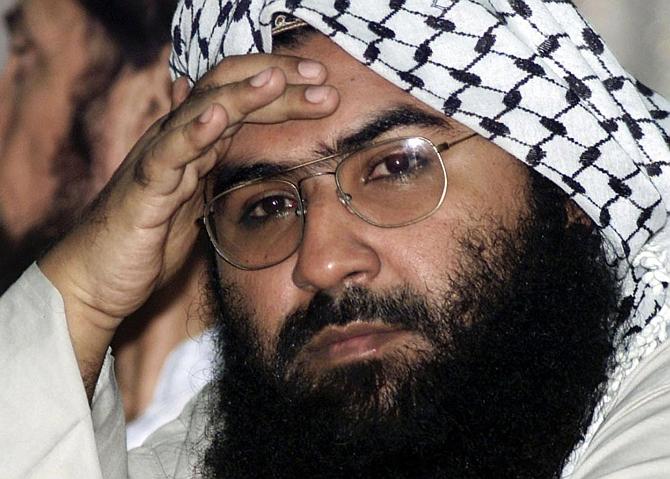
Brother of JeM chief Masood Azhar, Abdul Rauf, born in 1974 in Pakistan, has been involved in planning and executing numerous terror strikes in India including the hijacking of Indian Airlines aircraft IC814 in 1999, the attack on the Parliament in 2001 and the targeting of the IAF base in Pathankot in 2016.
China on Wednesday put a 'technical hold' on the joint proposal at the United Nations Security Council to designate Azhar as a global terrorist and subject him to assets freeze, travel ban and arms embargo, sources said and added that all other 14 member states of the top UN body supported the move.
Sources said such "politically motivated" actions by China in nearly every listing case of Pakistan-based terrorists reflected "undermining" of the entire sanctity of the working of the UN Security Council's Sanctions Committees.
This is the second time in less than two months that China has put a hold on a listing by the US and India to blacklist a Pakistan-based terrorist under the sanctions committee of the UN Security Council.
In June this year, China had put a hold, at the last moment, on a joint proposal by India and the US to list Pakistan-based deputy leader of Lashkar-e-Tayyiba Abdul Rehman Makki under the 1267 Al-Qaida Sanctions Committee of the UN Security Council. Makki is a US-designated terrorist and brother-in-law of Lashkar-e-Tayiba head and 26/11 mastermind Hafiz Saeed.
Makki too has been involved in raising funds, recruiting and radicalising youths to resort to violence and planning and executing attacks in India, including the Mumbai terror strikes.
The proposal to designate Abdul Rauf was moved in the UN Security Council 1267 Sanctions Committee and the documents related to it were circulated among all the member nations.
There has been "incontrovertible evidence" for both these listing proposals, sources said. Both the terrorists have already been sanctioned by the US under its domestic legislation.
"It is unfortunate that the sanctions committee has been prevented from playing its role due to political considerations. China's actions expose its double speak and double standards when it comes to the international community's shared battle against terrorism," said a source.
After China blocked the proposal to designate Makki as an international terrorist, government sources said that the action ran counter to Beijing's claim of combating terrorism.
The designation of Abdul Rauf would have resulted in a global travel ban on him as well as requiring Pakistan to freeze his assets and to cut off his access to weapons and related materials.
The US Department of Treasury had in December 2010 designated "Abdul Rauf Azhar, a senior leader of Jaish-e Mohammed, for acting for or on behalf of JeM."
The US said as a senior leader of JeM, Abdul Rauf Azhar "has urged Pakistanis to engage in militant activities. He has served as JeM's acting leader in 2007, as one of JeM's most senior commanders in India, and as JeM's intelligence coordinator."
"In 2008 Azhar was assigned to organise suicide attacks in India. He was also involved with JeM's political wing and has served as a JeM official involved with training camps."
Seeking to defend its move, China said it needs more time to assess the application and that it has strictly followed the rules and procedures of the UN's sanctions committee.
"We need more time to assess the application to sanction this individual," Chinese Foreign Ministry spokesman Wang Wenbin told a media briefing while replying to a question.
Wang said the 1267 Committee of the UN Security Council has clear provisions about scheduling and related procedures for designating terrorist organisations and individuals.
"China has always strictly followed the rules and procedures of the committee and in a constructive and responsible manner participated in its work. We hope other members will also do the same," Wang said in response to questions on Beijing putting a hold on the designation of Abdul Rauf Azhar as a global terrorist. A day before Beijing blocked this latest proposal, India's Permanent Representative to the UN Ambassador Ruchira Kamboj had said at a UNSC meeting, chaired by permanent-member and Council President China, that the practice of placing holds and blocks on listing requests without giving any justification must end and asserted that the credibility of the Sanctions Regime at an all-time low.
"An effective functioning of the Sanctions Committees requires them to become more transparent, accountable and objective. The practice of placing holds and blocks on listing requests without giving any justification must end," Kamboj said.
Kamboj had added that "it is most regrettable that genuine and evidence-based listing proposals pertaining to some of the most notorious terrorists in the world are being placed on hold".
"Double standards and continuing politicisation have rendered the credibility of the Sanctions Regime at an all-time low. We do hope that all members of the UNSC can pronounce together in one voice, sooner than later, when it comes to this collective fight against international terrorism," she had said.
Earlier also, China, an all-weather friend of Islamabad, has placed holds and blocks on bids by India and its allies to list Pakistan-based terrorists.
In May 2019, India won a huge diplomatic win at the UN when the global body designated Pakistan-based JeM chief Masood Azhar as a "global terrorist", a decade after New Delhi had first approached the world body on the issue.
A veto-wielding permanent member of the UN Security Council, China was the sole holdout in the 15-nation body on the bid to blacklist Azhar, blocking attempts by placing a "technical hold".
All decisions of the committee are taken through consensus.
In 2009, India moved a proposal by itself to designate Azhar. In 2016 again India moved the proposal with the P3 -- the US, the UK and France in the UN's 1267 Sanctions Committee to ban Azhar, also the mastermind of the attack on the air base in Pathankot in January, 2016.
In 2017, the P3 nations moved a similar proposal again. However, on all occasions, China blocked India's proposal from being adopted by the sanctions committee.
